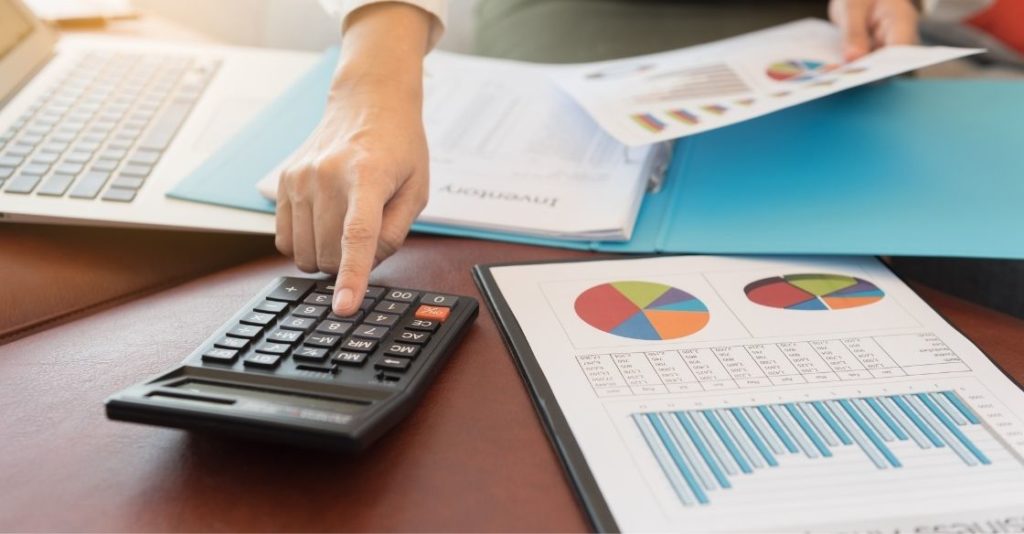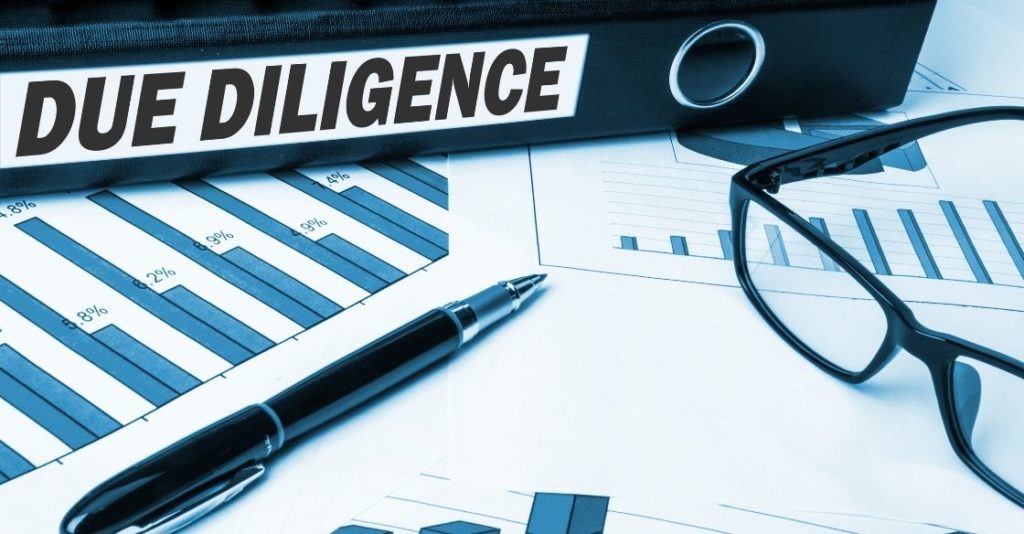Due diligence is an audit or a review to confirm the facts of a matter under consideration before realizing a transaction with another party.
In Thailand, it becomes a common practice to perform due diligence before doing a transaction with another party to secure your investment. Depending on each country’s law, failing to disclose information can make dealers liable for any claim by the investor.

What are the different types of Due Diligence?
Due diligence performed by companies for the acquisition of other companies, or any investment transactions.
Due diligence can be performed by individual investors using available public information. However, in case of using the services of a dealer or broker, they have an obligation to provide it, if this is prescribed by law, or may voluntarily provide it as a conscientious provider.
Due Diligence process: 6 steps
All of the information should be available in all reports of the company or in financial statements.
Hard due diligence is concerned with the figures, the acquiring firm analysts who perform due diligence by studying costs, benefits, structures, assets, and liabilities.
Soft due diligence is concerned with the people and the study of a company’s culture, management, and other human elements.
Do not ignore soft due diligence: if a deal fails it is often because of the human element.
When you start to evaluate a business, you should first check the values and the status of the following items.
1. Balance Sheet
Account receivables. Check the receivable ages (30, 60, 90, and more days). The value decreases proportionally to the duration. You can also verify at this step the creditworthiness of the top 10 clients.
Examination of previous and current data of financial statements compared to same businesses.
Inventory. It is usually subject to negotiation, but you should check all products and materials for resale to or use and determine what is in inventory, since how long and in which condition (salable or not).
Fixed assets. Check the list of all the furniture, buildings, equipment etc. Then determine actual condition, actual purchasing value, maintenance or improvement value. Determine what investment you’ll have to make in fixed assets to suit your needs.
Accounts payables. Check the payable ages (30, 60, 90 days, and more) to determine cash flows through the company.
Debts. Check outstanding notes, loans, and any other debt. Especially you can verify if there are any business investments outside of the normal way or any loans made to customers or directors.
Seller-customer. Check if there are any sellers-customers related or connected to the owner, why and if the business relation will continue if the ownership changes.
Capitalization. Large capitalized companies have more stable revenue and less volatility. Middle and small companies have higher fluctuations in their stock prices and earnings than large companies.

2. Profit and Loss
Sales. Check very carefully the income sales registered monthly by product. It will provide you an understanding of cycles and you can compare them with the same business companies.
Prices. Check current price lists and discounts, the data, and the percentage of the last increases. Compare this list with the same business companies.
Returns. What is the rate of returns and does it increase in the past year? (check the reasons for returns).
Advertising. Check the cost of advertising and the result on the sales.
Salaries. Verify if salaries are realistic and consistent with other business companies.
3. Legal and Contract
Contracts and legal documents. Review all the leases, purchase, subcontractor agreements, sales and employee agreements and the contract or any other legal documents concerning the business. You can check if they are transferable and if you need any permission.
Be aware, if the business you’re considering has valuable intellectual property it is better to consult a lawyer specialized.
Liabilities. You have to examine the list of liabilities and determine the potential costs and legal consequences (lawsuits, liens against assets, collateral to secure loans…) or any unrecorded liabilities, such as out-of-court settlements…
Employment. Checking the chart of employment (who reports to whom, specific on earning…) but as well understand the management practices (employment contracts, benefit plans, health, life and accident insurance…) and any employee-related lawsuits against the company.
Insurance. Verify what type and details of insurance coverage that the company has. Make sure the business is adequately protectd.
4. Other Data
Marketing. Check the different marketing campaigns, what they disclosed and how the image is perceived by customers and prospects.
Market analyzes. Analyze the market and the business targets to evaluate the potential profit and compare to competitors.
Reputation. Check how the business is perceived by customers and suppliers by interviews.
5. Risks
You have to take into account and clearly understand the business market risks and specific company risks.
Buyers should keep in mind all worst-case and their effect on the business (New product or competitor…).
Once you’ve completed this, you’ll have a better sense of performance and how it stacks up to the competitors.
6. Valuation
Many ratios and financial valuation can be done to evaluate companies, each investor can use his own but he should use not only one valuation type.
The most complete valuation method should be the Discounted Cash Flow (DCF): it determines the value of an investment based on its future cash flows, that’s mean that you will take in account future profit, cost of capital or loan and investment inside the company.
Due Diligence – Specifics on Thailand property
The due diligence process should be done before the signature of any purchasing contract of a property. The main goal is to protect the rights and interests, specifically of foreigners who wish to buy a property in Thailand.

1. Seller or Developer
- It is important to check the credibility of sales and if they have previously been involved in any court cases in the past.
- Review if the seller has the right to transfer the property and if he has not been declared bankrupt
2. Physical Inspection
- Connection of the land to a public road,
- Boundaries of the land in accordance with the title deed,
- Inspect the quality of construction work the relevant local zoning ordinances,
- Check the adjacent parcels of land and ownership.
3. Building Permits inspection
- Verification if the type of development is allowed to be constructed,
- Review the construction permit (legally issued and reflects the current plans),
- Check the approval from the provincial Office of Natural Resources and Environment of the Initial Environmental Examination (IEE) report filed.
But anyway, keep in mind that in any contract, with a good rentability and attractive price are often the sine qua none causation of a high-risk investment.
Gorioux Siam team can conduct a comprehensive review to help you to make a well-informed decision about the viability of a proposed sale or purchase.
For more information about our due diligence services, please contact Gorioux Siam info-siam@gorioux.com.

